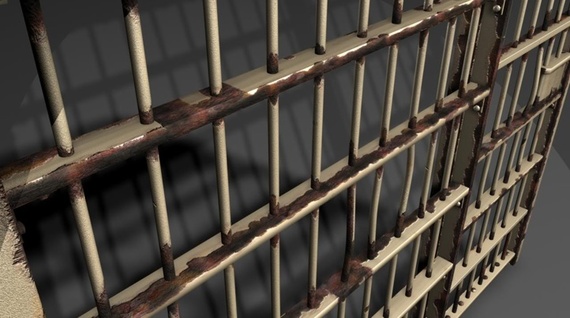And to other mothers who bear the brunt of hurtful policies
The wreckage of sentencing a pregnant woman who's also an addict costs our society more than the price of prison. I know first hand. My beloved biological mother, a chronic heroin addict, gave birth to me in a prison where I then lived with her for a year before removal into foster care and then adoption. I was born drug-exposed and I know the trauma and the development problems as a result of this. My family, the schools I attended, and the community, all paid the high costs of needing extra resources to address the havoc and aftermath.
On the other side, I am now evidence of how family support, community health care and wellness alternatives, and access to community resources, all set a positive path to wholeness, health and full citizenship.
The rate of increase in incarceration is one of the largest open bleeding wounds in the United States, for women especially. The U.S. imprisons more than any other country in the world, and for women, the rate of incarceration has increased 800 percent over a 20-year period, according to the Bureau of Justice. The number for men is half this. These dramatic facts are too stunning to ignore, and we pay great costs for this at the community level -- nearly 3 million children, most under the age of 10, have a parent in prison in the U.S.
Let's pay attention to the fractured families and the children left behind. Babies born in prison often enter the foster care system, as was my case. The cost of traumatized mothers and their children impacts school systems, neighborhoods and families. Why not re-direct tax dollars to community alternatives like treatment and mental health care rather than pay for these collateral damages later on?
It's time to engage alternatives for incarceration. Most women in prison are sentenced for drug-related nonviolent crimes, and most have experienced physical or psychological abuse sometime or another in their lives. Many have a diagnosable and treatable mental illness. Let's begin to view drug-related incarceration for what it is -- a public health problem not a criminal justice issue, because treatment and mental health alternatives have proven results.
Addiction is a treatable disease, but most recently, apparently not in Tennessee. Against the advice major medical associations, including the White House Office of National Drug Control Policy, Governor Bill Haslam signed a bill to allow prosecutors to charge a woman with criminal assault if she uses illegal drugs during her pregnancy.
Gov. Haslam reasons that the newborn is considered a victim and harmed as a result, yet he's ignored that pregnancy outcomes have more to do with access to prenatal health care, including mental health care. None of this is available in prisons or jails at the level necessary to treat an addicted mother.
This legislation is a dangerous precedent. It sentences two generations at a time, and a double life sentence for the baby because of the trauma of separation from her/his incarcerated mother. Tennessee will pay for this in the back end and will now endure a greater burden, that of caring for the children born to incarcerated mothers. It increases the burden on state budgets.
A call to action on Change.org asks Governor Bill Haslam to reverse his decision to prosecute women who are pregnant and addicted. The call is to then redirect resources and engage a committee to explore community alternatives for treatment, counseling and mental and physical health care for pregnant women who are addicted.
Putting women in prison for using drugs during pregnancy rather than providing community treatment and mental health care does not help the woman, nor does this help the baby, or society. If you agree, please walk the walk with this campaign and offer your signature of support.
--
To read a personal story about what can happen from a birth in prison and a pregnant incarcerated and addicted mother, read Prison Baby (Beacon Press.) It's my story.
For more facts about the impact of incarceration, visit The unPrison Project, a 501(c)3 nonprofit working to empower, inspire, and cultivate critical thinking, life skills, self-reflection, and peer mentoring for women and girls in prison as tools to plan, set goals, and prepare for a successful life.
